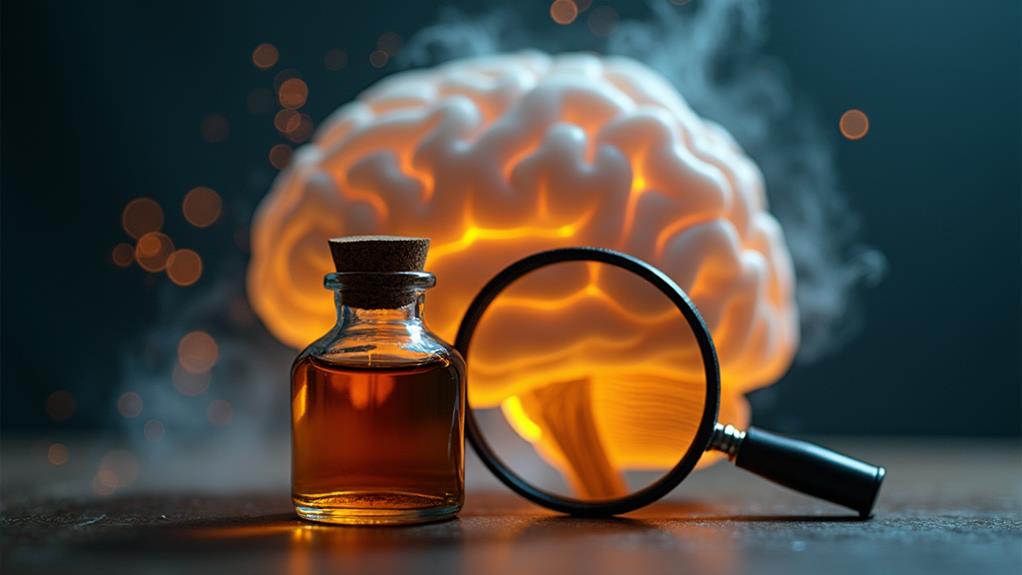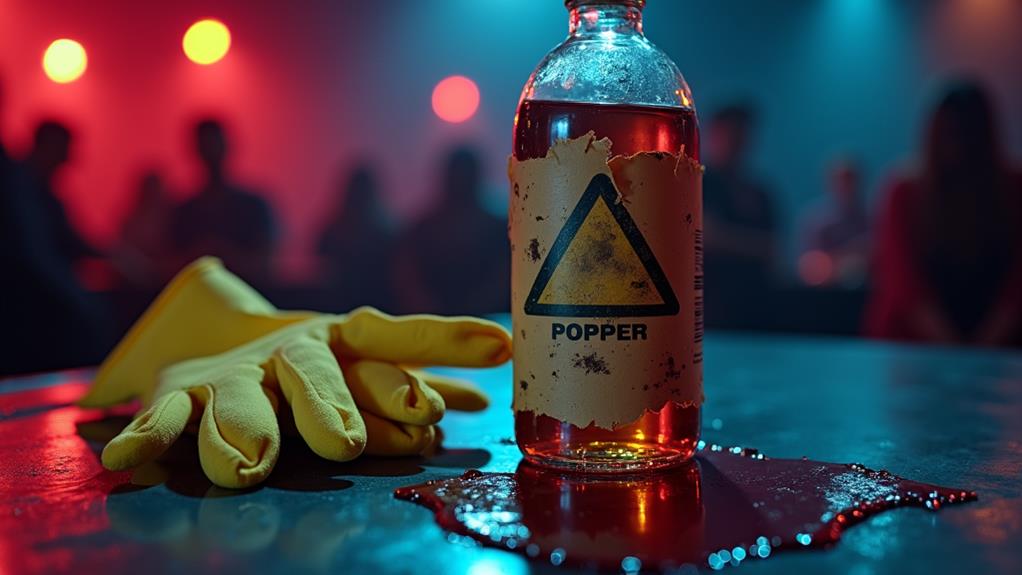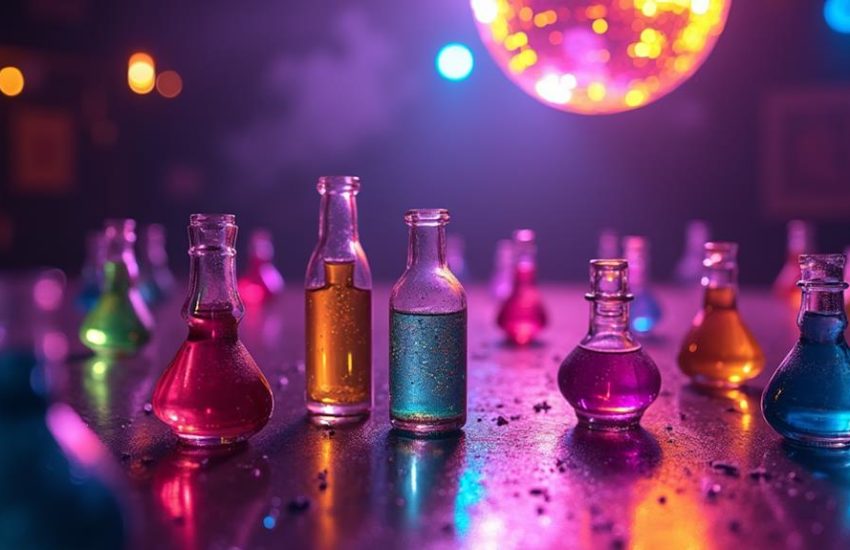Is Safe Popper Use an Oxymoron? Experts Weigh In on the Heated Debate
The debate over "safe popper use" remains contentious among health experts. Although some advocate for harm reduction strategies, emphasizing education and safer consumption practices, others argue that promoting any use is inherently dangerous. Poppers, or alkyl nitrites, carry significant health risks including methemoglobinemia, vision impairment, and potential long-term damage to various organ systems. Proponents of harm reduction aim to minimize adverse outcomes while respecting individual autonomy. Critics, on the other hand, stress the serious respiratory issues and legal implications associated with popper use. The ongoing discussion highlights the need for extensive research, improved public awareness, and careful consideration of both short-term and long-term consequences.
Understanding Poppers and Their Effects

Numerous recreational substances classified as poppers are alkyl nitrites, typically inhaled for their euphoric and muscle-relaxing effects. These volatile liquids, primarily composed of amyl nitrite, isopropyl nitrite, or isobutyl nitrite, rapidly enter the bloodstream when inhaled, causing immediate physiological responses.
Users experience a brief but intense rush, accompanied by decreased blood pressure, increased heart rate, and smooth muscle relaxation. Recent reports of Popper Maculopathy have raised concerns about the potential for vision impairment and other serious health effects.
The chemical composition of poppers contributes to their popularity in recreational use settings, particularly within certain LGBTQ+ communities. Although some users report improved sexual experiences and heightened sensations, it's vital to understand the potential risks associated with their use.
Short-term effects may include headaches, dizziness, and skin irritation, whereas long-term consequences remain subject to ongoing research. As the debate on safe popper use continues, understanding their pharmacological properties and effects is fundamental for informed decision-making.
Health Risks Associated With Poppers

A thorough understanding of the health risks associated with poppers is vital for users and healthcare professionals alike. These volatile nitrites can cause immediate adverse effects, including headaches, dizziness, and nausea.
More severe risks include methemoglobinemia, a potentially life-threatening condition that reduces oxygen transport in the blood. Users have additionally reported experiencing visual disturbances such as neon snowflakes during adverse reactions.
Long-term effects of popper use remain understudied, but evidence suggests potential damage to the immune system, liver, and retina. Chronic users may experience respiratory issues and increased susceptibility to infections.
While the addiction potential of poppers is considered low compared to other substances, psychological dependence can develop.
Users within the LGBTQ+ community should be particularly aware of the risks associated with combining poppers and erectile dysfunction medications, as this can lead to dangerous drops in blood pressure.
Harm reduction strategies and open dialogue within the community are vital for promoting safer use practices.
The Case for Harm Reduction

The case for harm reduction in the context of popper use has gained traction among public health experts and advocates. This approach acknowledges that complete abstinence may not be realistic for all users and focuses on minimizing potential harms associated with consumption.
Harm reduction strategies for popper use include educating users about safer consumption practices, such as avoiding mixing poppers with other substances, using in well-ventilated areas, and adhering to recommended dosages. Given the serious health risks including asphyxia, arrhythmias, and neurological dysfunction, it is vital to implement informed harm reduction strategies.
Proponents argue that harm reduction can effectively decrease adverse health outcomes while respecting individual autonomy. By providing accurate information and promoting safer use techniques, public health initiatives can potentially reduce the incidence of serious complications associated with popper use.
This approach likewise encourages trust between healthcare providers and users, promoting open dialogue and increasing the likelihood that individuals will seek medical attention when needed.
Arguments Against Safe Usage

As harm reduction approaches have gained support, critics argue that promoting "safe" popper use is inherently problematic and potentially dangerous. Opponents contend that any recreational use of poppers carries significant risks, including addiction potential and adverse health effects. For instance, inhalation can lead to serious respiratory issues, including shortness of breath and chest pain.
They emphasize that misinformation campaigns can downplay these dangers, leading to increased usage and social acceptance. Legal implications remain a concern, as poppers occupy a gray area in many jurisdictions. Critics argue that advocating for safe usage may inadvertently encourage illegal activities.
Additionally, they claim that harm reduction strategies could perpetuate social stigma surrounding popper use, potentially marginalizing users and complicating public health efforts. Skeptics maintain that the concept of "safe" popper use is fundamentally flawed, asserting that abstinence is the only truly safe approach.
They caution against normalizing recreational use, warning of potential long-term consequences for individuals and society.
Expert Opinions and Recommendations

Leading medical professionals and substance abuse experts have weighed in on the debate surrounding safe popper use, offering a range of recommendations based on current research and clinical experience.
Expert insights emphasize the importance of educating users about potential risks and implementing harm reduction strategies. Safety guidelines proposed include limiting frequency of use, avoiding mixing with other substances, and ensuring proper ventilation during consumption.
Given the reported eye discomfort and other visual disturbances associated with poppers, some experts advocate for stricter regulation and labeling standards to improve product consistency and reduce accidental misuse.
Others stress the need for more extensive research on long-term effects and potential drug interactions. Although opinions vary on whether truly safe use is achievable, there is consensus that improved public awareness and access to accurate information are essential.
Ultimately, experts urge individuals to carefully consider the potential consequences before engaging in popper use.
Call Us To Assist You
The debate surrounding "safe popper use" remains as volatile as the substances themselves. During harm reduction advocates argue for moderation and education, opponents maintain that inherent risks negate any concept of safety. This paradoxical discourse mirrors society's broader struggle with recreational drug use. Ultimately, the oxymoronic nature of "safe poppers" highlights the need for continued research, nuanced policy approaches, and a critical examination of risk-taking behaviors in pursuit of fleeting euphoria.


